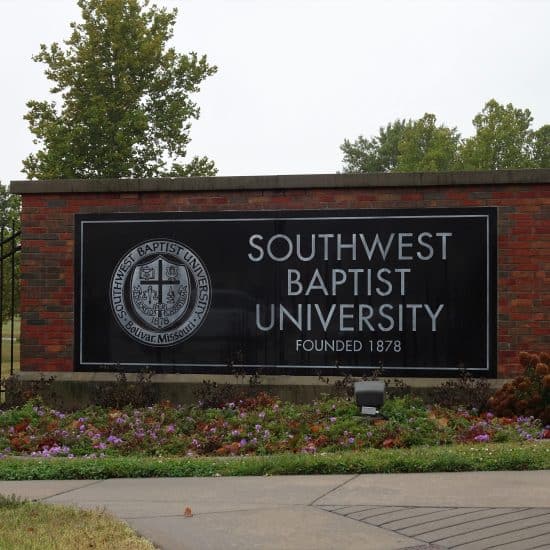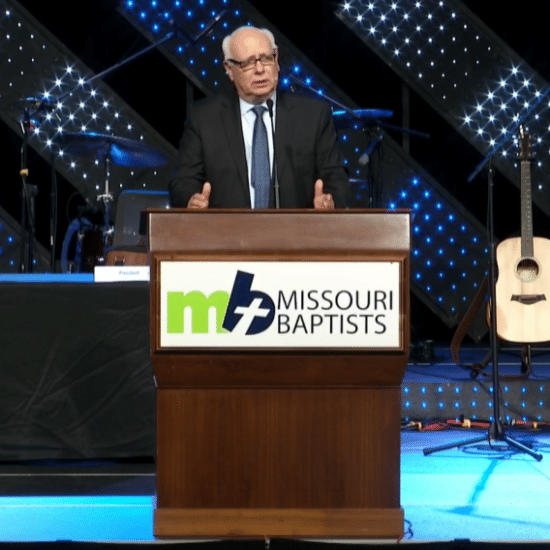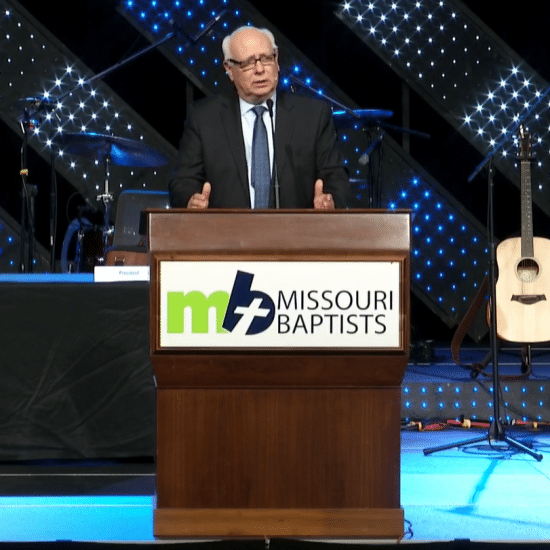A decade ago, the Missouri Baptist Convention sought to remove moderate churches by adopting a policy requiring single alignment with the MBC and Southern Baptist Convention. Now MBC leaders appear to be violating those rules while accepting fundamentalist churches into membership.
 In an effort targeting churches contributing to the Cooperative Baptist Fellowship or the Baptist General Convention of Missouri (also known today as Churchnet), the MBC adopted the single-alignment constitutional amendments at the 2005 annual meeting. Additionally, the MBC transformed the credentials committee into a standing committee with the power to determine if a church meets the standards for a cooperating MBC congregation. The following year, the MBC removed 19 churches for violating the single-alignment requirement.
In an effort targeting churches contributing to the Cooperative Baptist Fellowship or the Baptist General Convention of Missouri (also known today as Churchnet), the MBC adopted the single-alignment constitutional amendments at the 2005 annual meeting. Additionally, the MBC transformed the credentials committee into a standing committee with the power to determine if a church meets the standards for a cooperating MBC congregation. The following year, the MBC removed 19 churches for violating the single-alignment requirement.
Yet earlier this year, the MBC accepted High Street Baptist Church, a large congregation in Springfield, Mo., that maintains its alignment with the Baptist Bible Fellowship International. Created in 1950 with its headquarters in Springfield, Mo., the BBFI is a national Baptist body whose membership included the late Jerry Falwell.
The Feb. 14 issue of the MBC’s publication The Pathway reported that High Street decided to affiliate with the MBC and SBC after the pastor saw other “BBFI pastors lead their congregations to align dually with both the BBFI and with Southern Baptists.” The Pathway removed the phrase “align dually” from the online version of the article and posted a “clarification” in the Feb. 28 issue. Claiming the phrase “align dully” was not accurate, the clarification said the admittance of the church did not violate the MBC’s single-alignment policy since “unlike the Southern Baptist and Missouri Baptist Conventions, the BBFI is not a denomination, but rather a loose network of independent churches.” Despite that claim, the BBFI appears to meet the MBC’s own definition of a convention that would violate the single-alignment policy.
The MBC’s “Credential Committee Rules and Procedures” approved by messengers during the single-alignment votes in 2005 defines the MBC’s single-alignment policy. It notes a church can be considered a Southern Baptist church if it does not send messengers, financial support or budget funds “to any other national convention or organization which serves and/or acts as a national convention.” It adds, “Any organization which independently sends and ordains ministers to the United States military services shall be considered a national convention.”
The BBFI appears to meet those standards for a national convention. Although BBFI does not call itself a denomination — much as CBF also prefers to not call itself a denomination — it is frequently treated as one by those who study denominations and generally is ranked in the 25 largest U.S. denominations. Among the numerous groups calling the BBFI a denomination: Church Mutual Insurance, National Council of Churches, Pew Research Center, SBC’s North American Mission Board and Wheaton College’s Institute for the Study of America Evangelicals. Additionally, the BBFI’s missions website notes, “The Baptist Bible Fellowship International is recognized by the Department of Defense as an authorized Ecclesiastical Endorsing Agency for military chaplains.”
Bart Tichenor, an attorney and former Missouri Baptist pastor, said BBFI-affiliated churches appear to violate the MBC’s single-alignment requirements. Tichenor, who has served as a parliamentarian at MBC, CBF and other Baptist annual meetings, said that if he were asked to give an official parliamentary opinion on the case, he would want to review several documents (like the constitution/bylaws and the proceeding of the MBC meeting where single alignment was passed). He added, however, it seems from public reports that “the MBC leadership is simply ignoring any possible constitutional or bylaw conflict and taking the position that the BBFI is not a ‘convention.’”
“As a parliamentarian, based on the language of the Credentials Committee, I don’t see how a church affiliated with the BBFI is not a ‘dually-aligned’ church if it affiliates with the MBC/SBC,” he added. “Unless, High Street and other BBFI churches are going to eliminate the BBFI and BBFI missionaries, etc. from their budgets and sever all ties with BBFI, it appears, from a parliamentary position, such congregations would be dually aligned.”






